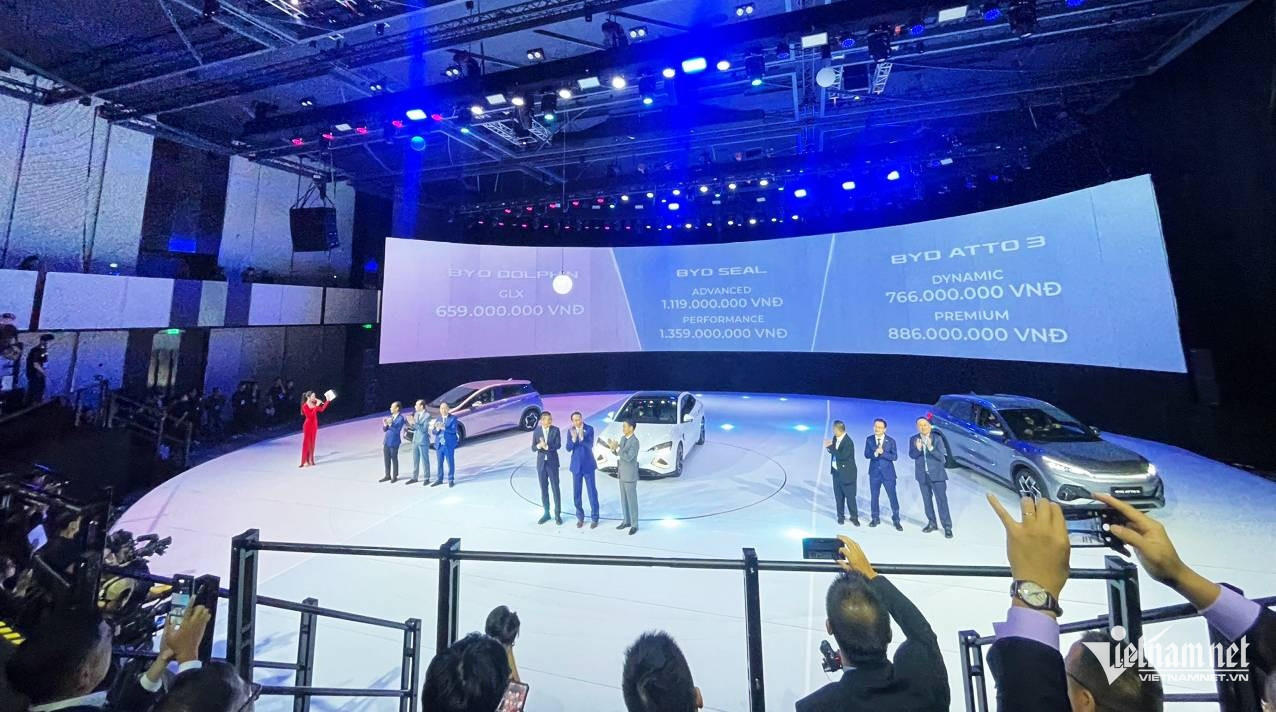
BYD (Build Your Dream) is a well known car brand from China. In 2023, the manufacturer officially surpassed Tesla to become the largest global electric vehicle manufacturer with 3.02 million cars sold.
Taking advantage of the global shift to electric vehicles, BID has been trying to expand its ‘empire’ beyond the Chinese territory. Vietnam, with a population of 100 million, expected to have 1 million cars by 2030, is an attractive market for the manufacturer.
In early 2023, Reuters reported that BYD planned to build a factory in Vietnam to manufacture car parts. Later, at the meeting with Vietnamese Deputy Prime Minister Tran Hong Ha in May 2023, BYD president Wang Chuanfu mentioned the issue.
Gelex, a partner which was negotiating with BYD, stated that it would reserve 100 hectares of land in an Industrial Zone in Phu Tho province for BYD to build its factory.
Vietnamese then looked forward to seeing Chinese cars assembled in Vietnam, which would give a breath of fresh air to the Vietnamese automobile market.
However, the giant Chinese electric car manufacturer has unexpectedly done a U-turn.
Replying to Vietnamese goodwill and the welcome from local authorities, BYD has canceled the plan to set up a factory in Phu Tho. Sources said the Chinese manufacturer made the decision because signs of slowdown in the electric vehicle market forced it to reconsider.
This could also be why New Energy Holdings (NEH), a subsidiary of Tasco Auto, unexpectedly informed BYD about its decision to cancel the cooperation plan under which NEH would be the distributor of BYD products in Vietnam in May.
BYD’s business strategy seemed to be clearer recently. On July 15, Cambodian PM Hun Manet wrote on social media that Chinese BYD would build an assembly factory with a capacity of 20,000 products a year in Cambodia.
The information was released rafter the meeting between Hun Manet and Liu Xueliang, CEO of BYD in Asia Pacific.
Just days before, on July 4, BYD opened its first automobile manufacturing factory in Thailand and its first factory in Southeast Asia. Another factory is under construction in Indonesia.
To date, the only event that marks a presence of BYD in Vietnam is the launch of three electric car models on July 18, imported as CBU, and a test drive in Hanoi and HCMC last May. The manufacturer also said ‘no’ when asked about the plan to develop charging stations in Vietnam. The plan on setting up a factory in Vietnam has also stalled.
Observers commented that BYD’s actions in Vietnam show that the Chinese manufacturer had just wanted to explore the Vietnamese market, and polish its image. The leading Chinese electric vehicle manufacturer does not consider Vietnam a destination for investment, but just a market on its Southeast Asian market map.
Low-cost strategy
On July 17, BYD officially marketed three electric vehicle models, including Dolphin (B-size hatchback) priced from VND659 million; Atto 3 (B+ SUV) priced at VND766-886 million); and Seal (D-size sedan) priced at VND1.19-1.359 billion.
The prices, analysts say, are relatively high compared with the other products of the same market segment. However, analysts believe that these prices may not be the final prices at which BYD wants to sell to Vietnamese.
In early July, in Thailand, BYD unexpectedly announced new prices for some car models. BYD Atto 3, with 4 versions, had new price levels of 799,900-859,900 baht (VND513.5-552 million), which mean a 90,000-340,000 baht (VND57.8-218.2 million) decrease. Just some days before, the model was priced at 899,900-1.199 million baht (VND577.6-770 million).
The unexpected price fall then caused complaints among Thai customers who had bought BYD cars before at the old prices. They complained that they bought cars at unfair prices.
Thai Prime Minister Srettha Thavisin asked BYD to explain this and said that Thai customers must be protected. The distributor of BYD products then had to compromise by refunding money to clients.
Analysts pointed out that fixing car prices at high levels and reducing prices later must not be seen as a sale promotion for consumers’ benefit, but dumping of products to acquire a larger market share.
It is unclear if the Chinese manufacturer will apply the same strategy in Vietnam.
Hoang Hiep